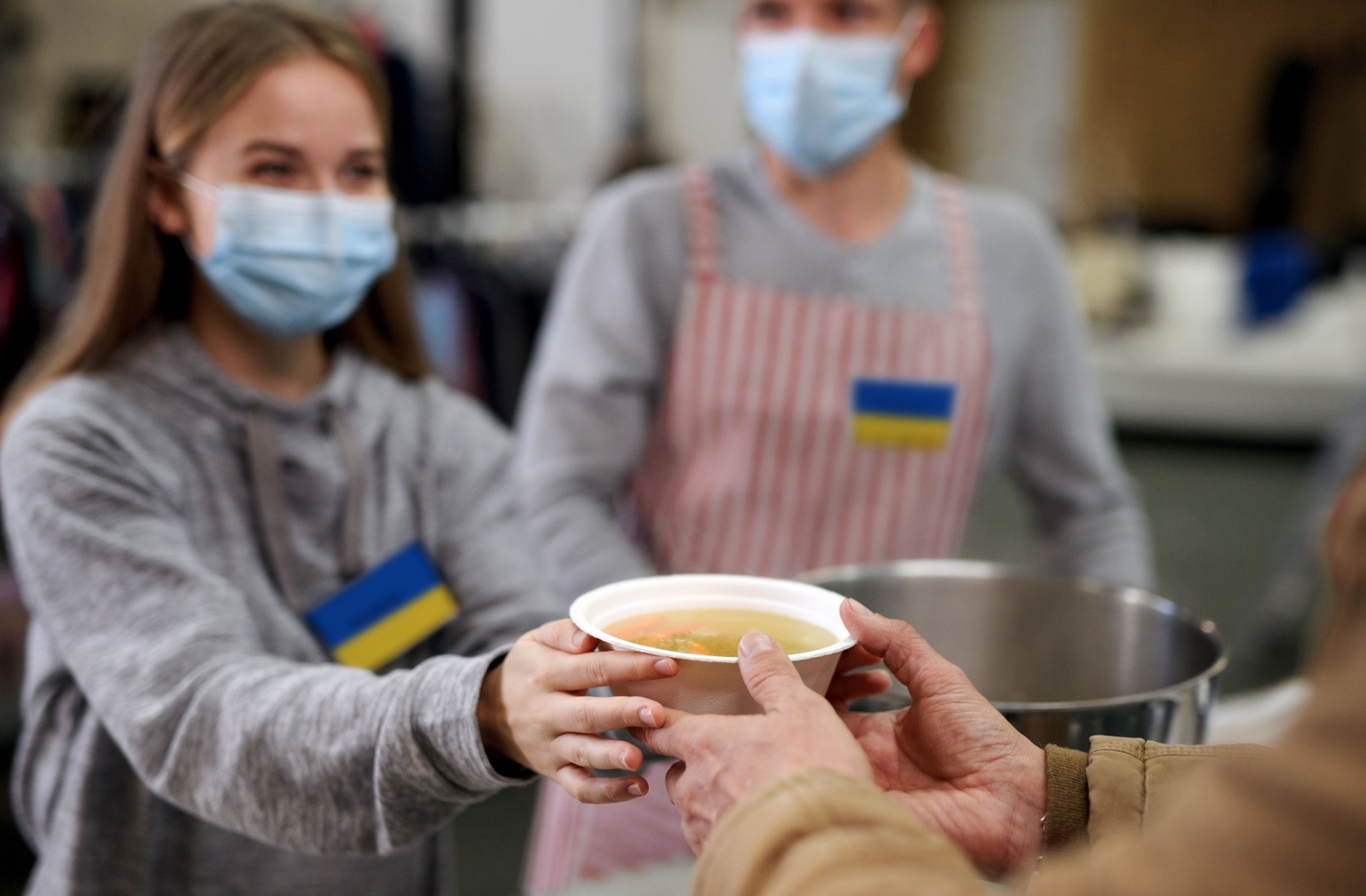In the hustle of everyday life, it’s easy to forget how rewarding it can be to give back to our communities. Volunteering at a soup kitchen (better known as a meal program) offers a unique opportunity to help those in need, grow personally, and connect with others.
If you’ve ever considered lending a hand but aren’t sure where to start, contact local organizations or a volunteer center to find opportunities to volunteer at a soup kitchen. They can help you find a volunteer role that fits your time commitment and provide information on what to expect when volunteering.
Benefits of Volunteering
The benefits of volunteering can include the following:
- Personal growth: Volunteering challenges you to step outside your comfort zone and obtain fresh perspectives. It’s an enriching experience that can enhance your empathy, compassion, and understanding of social issues.
- Gain skills and experience: Volunteering can help people gain and develop knowledge, experience, and skills that can help in other areas of life.
- Community impact: The immediate benefit of your contribution is tangible—fewer hungry people in your community. But the impact goes deeper, fostering a culture of care and support that can inspire others to also contribute.
How to Get Started Volunteering at a Soup Kitchen
Volunteering at a soup kitchen goes beyond merely serving food. It’s about providing warmth and a sense of belonging to those who might feel forgotten by society. Meal programs are havens of hope, not just for the meals they offer but for the community they nurture among volunteers and visitors alike.
Here is how you can get started volunteering at a soup kitchen:
- Find local soup kitchens: Start with a simple online search for meal programs in your area. Local community centers, religious organizations, and non-profits often run these programs and are in continuous need of volunteers.
- Understand requirements: Each organization will have its own set of volunteer requirements. Some may require a background check, while others might require an interview or need you to undergo short training. Reach out to them directly to understand how you can prepare.
Preparing for Volunteering

There are several things to consider when volunteering, especially if you’re a first-time volunteer or volunteering in a new capacity.
What to Wear
Comfort is key. Opt for closed-toe shoes and practical clothing you won’t mind getting a bit dirty. Remember, it’s all about the service, not the style.
Mental Preparation
Approach volunteering with an open heart and mind. Be ready to listen and learn from the stories around you. These interactions can be as nourishing as the meals served.
What to Expect
Soup kitchens can be hectic environments, especially during holidays. Be ready to take on tasks as needed, from cooking and cleaning to serving and talking with guests. No two days at a meal program are usually the same. You might find yourself chopping vegetables one day and sorting donations the next. The work might be physically tiring, but the smiles and thank-yous you’ll receive are incredibly uplifting.
Training
If you’re unsure of how to perform a task, request training to safely perform any volunteering tasks assigned to you. Make sure you’re provided with proper instructions and protective equipment if needed.
Safety
If you’re volunteering at a new place, you may not be fully aware of the environment and should be mindful of your safety. When you’re tired or overextended, you pay less attention and can increase your risk of injury. Make sure you consider your time commitment to volunteering and times that work for you that don’t conflict with other responsibilities.
After Volunteering
Reflecting on the Experience
Take some time to think about your time volunteering. What did you learn? How did it make you feel? Reflection is a crucial part of the volunteering process, helping to cement the value of your contributions and the lessons learned.
Future Involvement
If you found the volunteering experience rewarding, consider making it a regular part of your life. Many organizations rely on a steady stream of volunteers and would welcome your ongoing support.
A Meaningful Way to Give Back
Volunteering at a soup kitchen like Regeneration Brampton’s Meal Program is a profoundly human way to connect with and support your community. It’s about more than just food; it’s about compassion, empathy, and understanding. The volunteering experience could change your life and the lives of those you serve, one meal at a time.
Take the first step today by contacting Regeneration Outreach Community for volunteer opportunities, such as:
- Breakfast meal program kitchen volunteer
- Lunch meal program kitchen volunteer
- Clothing room volunteer
- Food bank volunteer
Whether you’re a student, a professional, or simply someone looking to make a difference, there’s a place for you in the world of volunteering.



